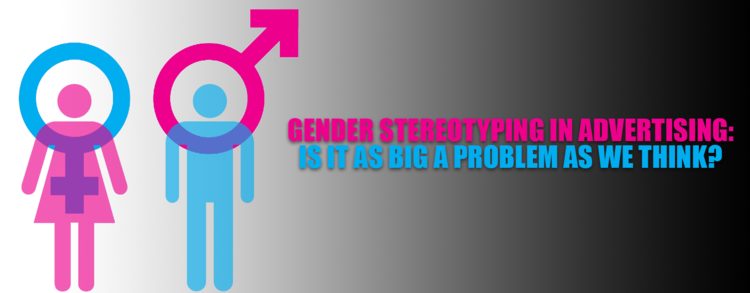You’ve probably read about the Google employee that was fired for internally circulating a memo with some choice words regarding a supposed male predisposition to working within certain enclaves of the tech industry. Yet, it’s nowhere near the first incident of gender stereotyping creating a firestorm of articles, tweets and opinion pieces this year.
The Advertising Standards Authority (ASA) claimed earlier this month that they want to put a ban on adverts depicting gender stereotypes – women being housewives, doing dishes, solely responsible for their kids, while men do ‘man-stuff’ (fixing, building etc.). In fact, brands including the likes of Gap, KFC and Apitmal have come under fire recently for adverts that depict boys as “little scholars” and, in the case of Gap, girls as ‘social butterflies’.
Young girls growing up to be ballerinas, boys become rock climbers (obviously, it’s every little boy’s dream, isn’t it, Aptimal?). Men mocking one another for having candles while boasting about the size of their TV “…because I am a man” (how this relates to chicken is anyone’s guess, KFC).
Prime examples and proof-positive that subliminally, large swathes of the country have these ingrained ideals of ‘blue and pink’.
Yet, recent research by Atomik Research of 2,000 UK adults developed some theories you probably wouldn’t expect. Surprisingly, the majority of the UK public don’t seem to think it’s an issue at all. 54% said they don’t think they’ve seen anything that specifically stereotypes gender recently. With only 18% of adults saying they’ve seen an advert in 2017 that portrays a gender stereotype
So, that leaves the big question: Are certain aspects of the media making a bigger deal out of this than they should?
The majority of those asked (58%) felt that advertising was just that, advertising, suggesting they feel it has no undue influence on them. However, is that the effect a slow drip-feed of this kind of advertising has over the course of a few decades? Perhaps there is a general blindness to it? On the other hand, you could argue that maybe we see it and just accept it. Perhaps some gender stereotypes aren’t inherently negative, just showcasing a way of life.
The nation seems to be divided when it comes to whether there can be a positive aspect of stereotyping. Over a third think it’s impossible for any stereotyping to be positive. The research revealed 31% think there could be the possibility of humour and a further 31% think it can be light-hearted if done effectively.
That however, does not mean there isn’t cause for concern. For the three in ten adults that are concerned by stereotyping, their biggest worries seem to be the fact that advertising pressures people to look and act in a certain way (60%), it influences what people expect of others (54%) and that it can encourage sexism (50%), while 37% think that it limits people reaching their full potential.
The core issues at the heart of the debate are the implications that this may have on children, with their squishy, malleable brains. It’s not just the perceptions that they form in terms of what is normal and expected by each sex but also their ambitions or, indeed, what is possible for them to achieve in later life. Over 34% agreed that children are exposed to too many gender stereotypes from a young age, while most over-55s (55%) believe in this more strongly than most.
The shocking reality is the effect that this may have already had on an unknowing generation. Of the women surveyed, they are much more likely than men to feel they have been held back by their gender in employment (21%), education (11%) and interviews or other business situations (11%) as well as in family life (9%), regarding the expectations of childcare etc. 27% of 25-34 year olds think they have been held back in employment, such as promotions or pay rises because of their gender, along with 22% of 35-44s.
With the sting of the ‘Are you Beach Body Ready?’ Protein World advert controversy not so far gone, most adults in the capital (41%) are overwhelmingly in support of advertising authorities getting involved to keep a watchful eye on stereotyping, according to the research.
What do you think? Is there a mountain being made out of a mole hill or do the advertising authorities have a point? One thing that seems clearer than the rest, is that the industry is going to change regardless of public perception. Yet, we can’t help ourselves but wonder if it really is as necessary as some would have you think.
